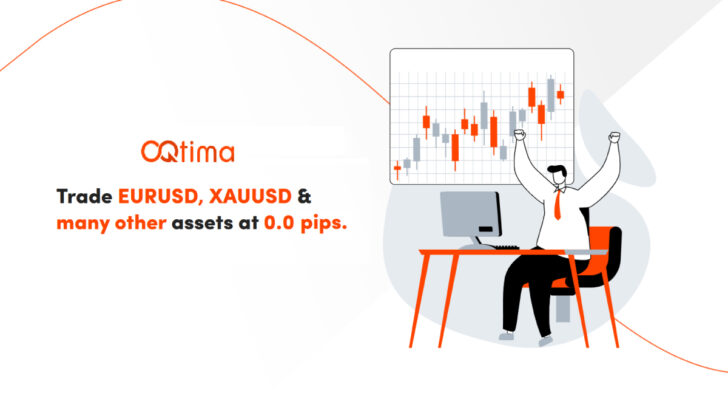Order Execution Statistics of FXPro with No Dealing Desk Execution


Superior Order Execution of FXPro
FXPro is proud of its superior order execution quality.
As a NDD Forex broker, FXPro does not interfere its traders’ orders or manipulate market prices to take advantage.
FXPro sets up its trading server as the Equinix Data centers LD5 London and Amsterdam.
The trading servers are co-located and cross fiber connected with Tier 1 banks who provide liquidity via FXPro’s proprietary aggregator Quotix.
On FXPro’s trading platforms, most of live orders are executed within 10 milliseconds.
FXPro’s trading servers have the capacity to execute up to 2,000 trades in such a high speed.
In terms of slippage, FXPro has recorded that 82% of market orders were executed at the requested price, while 9% of client orders were executed with positive slippage.
In terms of re-quotes, only 0.68% of all instant orders received a re-quote with 0.32% of them receiving an even better price to execute their order at.
Know when to execute your orders
In FX, the difference between the amount (position) of a foreign currency bought and sold in a new order and the opposite order in a settlement order is the profit or loss.
In other words, FX settlement means letting go of the position you hold and settling profit or loss.
If you do not settle, the profit or loss will remain unfixed, but if the unrealized loss expands too much, it may be forced to settle (stop out) by the system of FXPro, so you should be careful about the timing of settlement.
So where should we determine the payment timing?
There are two types of FX settlement which are profit determination and loss cut.
FX settlement is divided into “profit determination” that is settled when unrealized gains are made, and “loss cut” that is settled to prevent further losses when unrealized losses are made.
When making profits/loss cuts, it is important to follow the specific rules that you have decided and make an effort to increase your overall profit (small loss).
Regarding loss cut, be sure to keep in mind the forced settlement (stop out) rules too.
The level of stop out is different depending on the account type you choose.
For the list and comparison of FXPro’s trading account types, visit the page here.
Be careful of forced settlement (Stop Out)
In FX, if you do not settle, even if there is a loss on the chart, the actual loss is not fixed and it remains as an unrealized loss and the fund does not decrease.
However, if the unrealized loss exceeds a certain percentage, FXPro’s system may perform forced settlement (stop out) so that no more than the amount of money (margin) stored in the FX account is lost.
Stop out is obligatory to many Forex companies according to the agreement of the Financial Authorities, it is a mechanism to protect customers’ funds, but if activated, all positions held will be automatically settled and transactions will be made with a large loss.
Therefore, it is important to set and execute the stop loss line by yourself so that the stop out will not be activated.
In FX, you can trade margins several times more leveraged, so even a small price movement makes it easy for losses to swell.
Therefore, let’s confirm how much the market price moves from the current market price to activate the stop out by using the online calculator of FXPro in the Official Website.
It is also effective to take precautionary measures such as placing stop orders in advance.
4 Tips to execute your orders before it’s too late
Clarifying the criteria for profit determination and loss cut is very important when trading Forex and CFDs.
The important thing about FX is to decide your own rules for settlement.
Since settlement is a decision on profitability and loss cut, in both cases there is a mental burden.
Let’s plan with a profit-making and loss-cutting line based on the rules, without being overwhelmed by the emotions of the moment.
Here are 4 tips and moments that you may want to settle your orders.
1. Cut losses based on percentage rule
There is a method of setting a loss cut line, with an allowable loss of 2% of the funds currently held.
For example, if you currently have 1,000 USD, it will reach stop out level when the unrealized loss of one transaction reaches 20 USD.
If the amount of funds changes due to profitability or loss cut, you will use that as the standard.
2. Determine the ratio of profit margin and loss cut width
It is also effective to determine the profit/loss ratio (risk reward) in order to trade successfully in the FX market.
For example, if the profit margin is 200 USD (20 pips) and the loss cut width is 100 USD (10 pips), the risk reward is 1:2.
In this case, even if you cut the loss twice, you can recover the loss if you make one profit.
FX trading is unlikely to win every time, so it is good to be aware of risk rewards.
3. Utilize technical analysis
In FX, there is a method called a technical analysis, in which the profit/loss cut line is drawn from the fluctuation range (volatility) of the past market price and the maximum/minimum price.
For example, if you use the “Ichimoku Kinko Hyo” indicator, you will make a profit in front of the “cloud”, and if you are using a “Bollinger band”, you will make a position to profit at 1σ.
In addition, using technical analysis, it will be possible to read from the current market situation whether to enter or not, and it will be possible to open a new position in a more advantageous position.
There are also easy-to-use methods such as trend lines, so it’s a good idea to use them.
All the basic and advanced technical indicators are already built-in on FXPro’s trading platforms.
For more information about FXPro’s trading platforms, visit the page here.
4. Settle before weekends and long vacations
Although FX can be traded 24 hours on weekdays, it cannot be traded on Saturdays, Sundays, Christmas, and year-end and New Year holidays when the market is closed.
If there is a serious economic or political event, a dignitary statement, or an event during the vacation, the market price may move suddenly after the vacation.
Therefore, it is important to close your open positions before weekends and long vacations.
Also, be sure to check the political and economic risks and conditions (fundamentals) of the issuing country of the currency you are trading.
Latest Features
- Close






